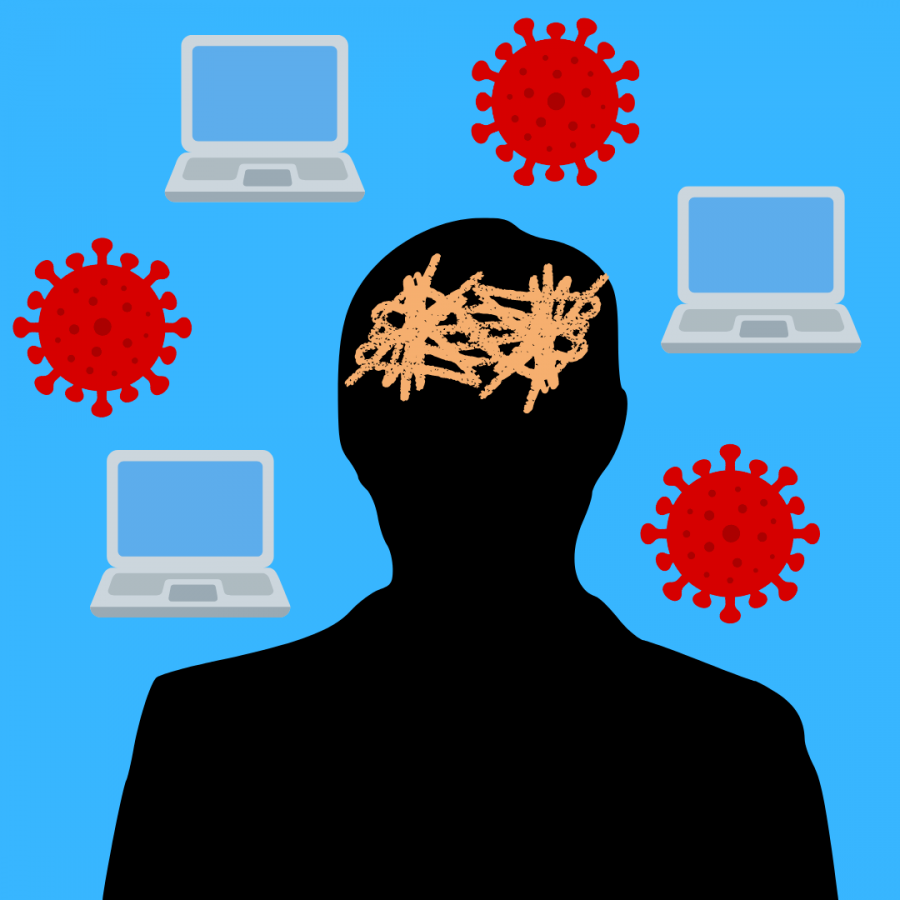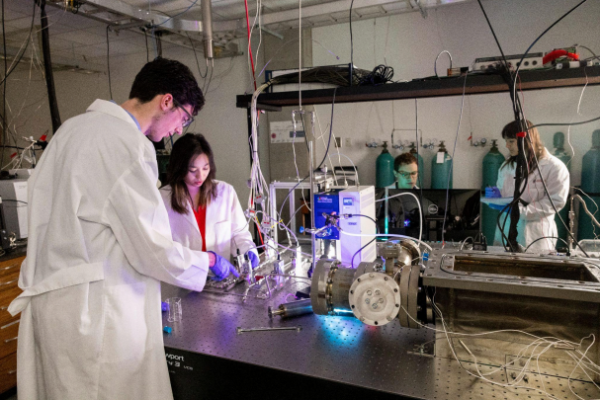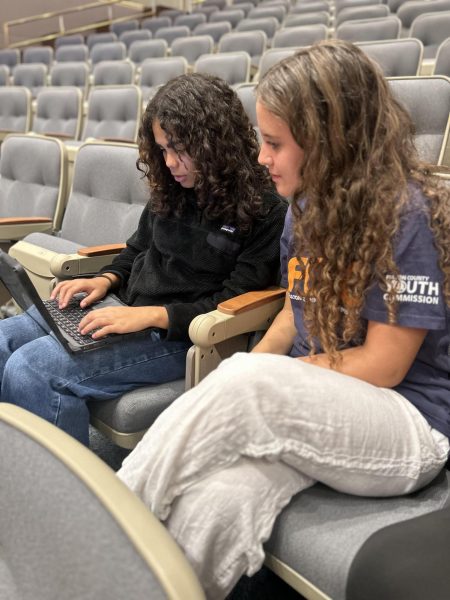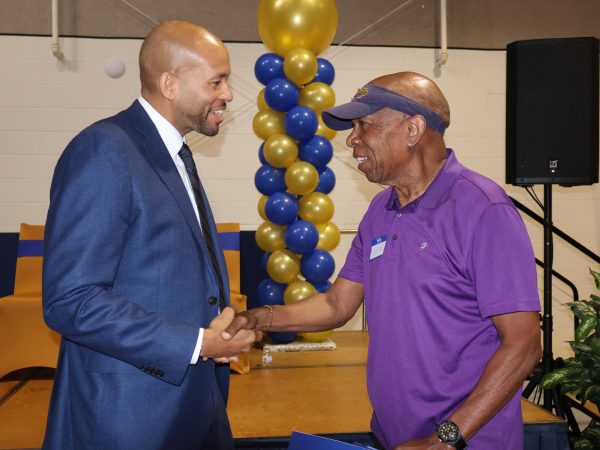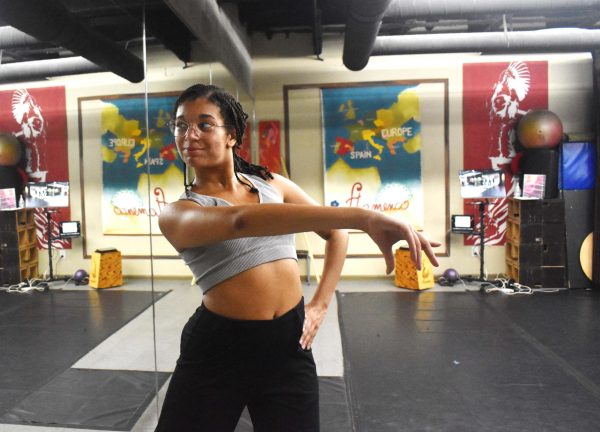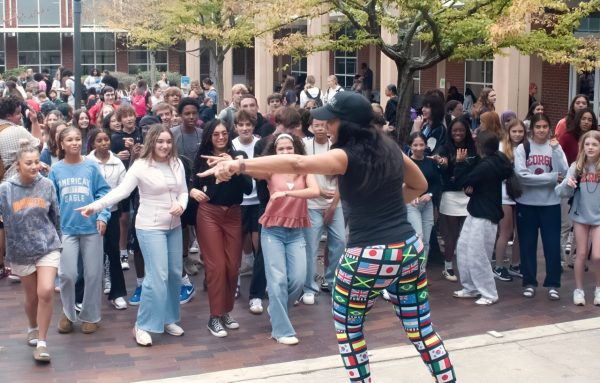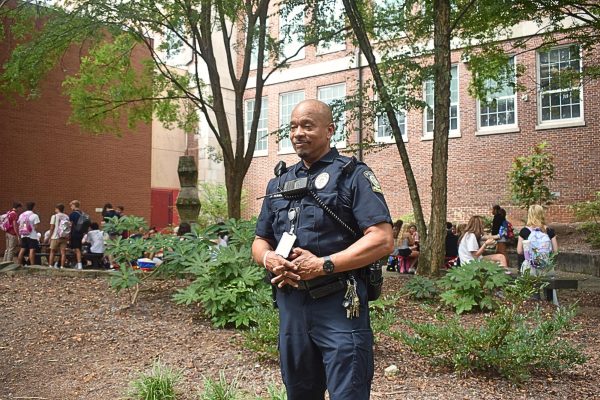One year later: pandemic-related mental health issues linger
As Grady approaches one year of virtual learning, many students feel the enduring mental exertion and strain on their mental health.
Senior Richard Aytch struggles to find the energy to go to class and has a hard time mustering up the enthusiasm to do what he loves: making art. Senior Joanna Baker finds it exhausting just to make it through an online school day, much less attack the mountain of homework she has each night.
As Grady approaches a year of distance learning, many students feel their mental health issues continue to be exacerbated by the pandemic and online school. With only 15 percent of students going to school in person, those who chose to remain virtual fear that mental health issues brought on by online learning show no signs of ending.
Dr. Becky Beaton-York is a licensed psychologist with over 25 years of experience and the founder and director of The Knowledge Tree, which provides workshops for mental health professionals. As the one year anniversary of the pandemic nears, Dr. Beaton-York predicts many people will experience strong feelings of loss and sadness.
“In the mental health field, any time there’s an anniversary, people will typically have a reaction, like an anniversary of somebody’s death or an anniversary of a trauma that happened,” Dr. Beaton-York said. “People are realizing ‘Oh my gosh, it’s already been a year, and we don’t know exactly when this is going to end.’ People are having more of a grief and loss reaction at this point. They’re wondering if their life is ever going to be back to the way it used to be.”
Dr. Beaton-York also emphasized the negative impact that limited in-person social interaction has on developing teenage minds.
“We need to be around [other people] for our nervous system,” Dr. Beaton-York said. “Our nervous system doesn’t operate in a vacuum, and so, we actually help each other regulate our nervous systems … It is such an important developmental phase where teenagers are really learning to rely on their friends and become more independent, and they’re not having that opportunity. I think it’s affecting their mental health more than anybody really realizes.”
Aytch said the extended period of virtual learning has taken a serious toll on his mental health. He hasn’t received a diagnosis, but as a self-declared “outgoing and extroverted person,” he’s suffered from the continued isolation from his peers and an overall lack of motivation.
“For certain people, this is a cakewalk, like they never did their work anyways, but for me, it’s hard to want to do my work but never feeling like doing my work,” Aytch said. “And that’s one of the things I’ve been feeling, just the lack of energy, the not being able to get out of bed, the not wanting to do more than I have to. I’m falling asleep a lot more in class. I’m not paying attention as much as I used to.”
Other students feel similarly. Baker was recently diagnosed with anxiety after
noticing symptoms that were magnified by online learning. She said virtual school has been significantly more draining than learning in person.
“It’s very difficult to keep a routine, and a lot of the time, I’m just so tired after school,” Baker said. “It’s very tiring to be anxious all the time; so, especially in the evenings, it’s very difficult to still do my homework and do all the other things I need to do that aren’t during the school day.”
Dr. Beaton-York said feelings of lethargy and exhaustion are normal while living through such a stressful time.
“Depression and anxiety are like two different sides of the same coin,” Dr. Beaton-York said. “You can only stay anxious for so long, and our bodies sort of shut down in order to restore themselves. There’s solid research that oftentimes people, after they’ve been anxious for a period of time, will end up depressed because their body has been so revved up for so long.”
Some students said feelings of low energy are hard to overcome. To this, Dr. Beaton-York advises them to get outside and get moving.
“I think the number one thing that people could do right now is exercise in order to get that energy moving,” Dr. Beaton-York said. “Energy begets energy, and exercise really reduces stress and the stress hormones.”
Though school counselors are providing daily Social Emotional Learning (SEL) Zoom sessions, some students expressed a desire for more support from Grady. For some, the mental exertion of online learning hasn’t gotten easier over time.
“I just do wish school was a little bit more lenient now, and to some extent, it is, but I feel like we just can’t keep functioning as if this is a normal school year, except we’re just on computers now,” Baker said. “There are a lot more layers to it, and especially for students with mental health issues, it’s a much different environment.”
As the pandemic continues, many students have found comfort in knowing other people are going through similar experiences and have made an effort to be there for their friends. Aytch said that he has reminded many friends they can and will get through this.
“They just feel like they’re trapped in a vacuum, and I just have to be like the vacuum ends at some point,” Aytch said. “You’re not going to be numb for forever. It’s just a matter of taking one step at a time and trying to get through it. We’ve all been dealing with it. It’s the small things that count and that get us through this.”

Dana is a senior who loves using her voice to tell other people's stories as well as share her own views. She really enjoys writing for the Southerner...


